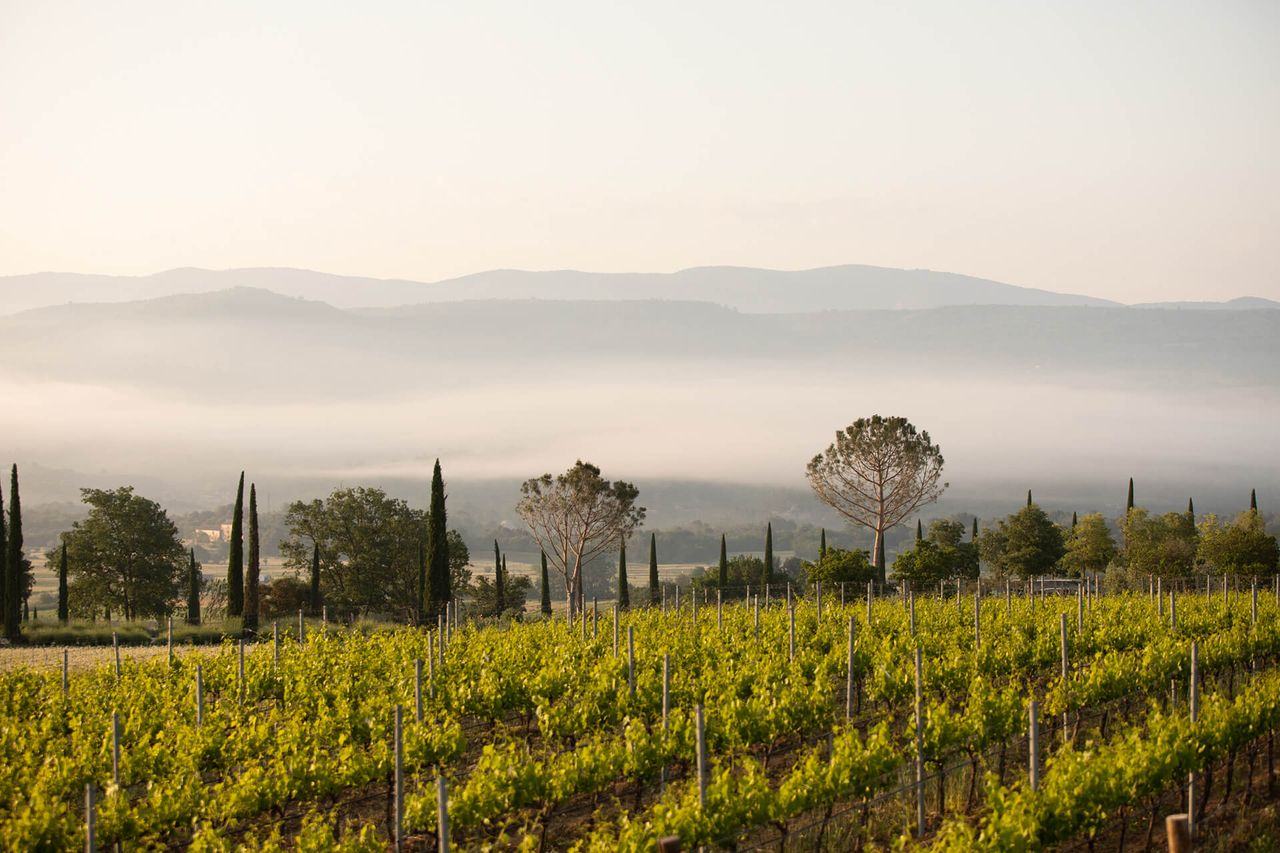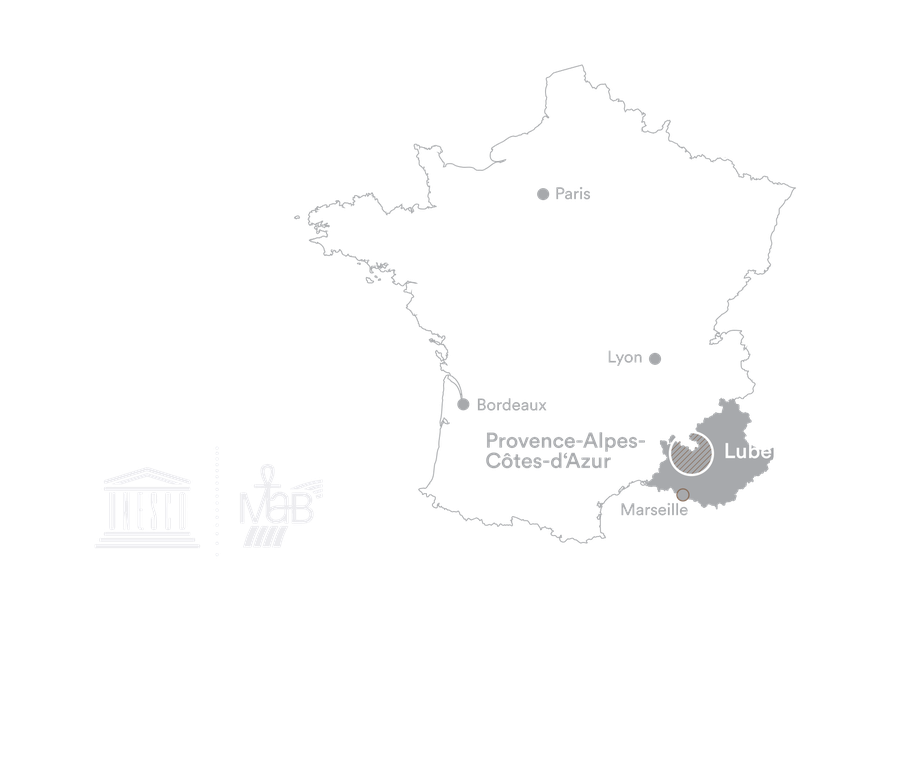
The estate is part of the southern Vallée du Rhône winegrowing region. Planted on the property of our Hotel Coquillade, the vineyards are primarily situated within AOC Ventoux in the Luberon regional nature preserve, a UN biosphere reservation since 1990. It is a place of cold nights, hot days, solid ground, gentle light, and the purest scents of nature.
We love this unspoiled land and nature's ability to create such unforgettable landscapes, especially Mont Ventoux. This tableau is full of challenges, which we accept as part of our mission: laying the foundation for a promising viticultural future.



The grapevine is a powerful plant, capable of digging its roots deep into the soil. This is no simple matter in Luberon, where the soils are stony and barren. To help young seedlings with their work, we treat them with a mix of clay and mycorrhiza prior to planting so that the vines can enter into symbiosis with the fungus. Simply put: The vine feeds the fungus, while the fungus uses its root-like growth to provide the vine with water and nutrients. The fungal roots essentially enlarge the vine’s overall root volume, which during the hot and dry summer months can represent a major boost in quality. This natural win/win situation allows for a deeper expression of terroir in the wine.
The rootstock serves as the critical bridge between soil and scion. Its individual characteristics determine the vine's growth power, which is why we match our rootstock with extreme care to a site’s exact soil conditions, in an effort to promote greater balance. Too much vigor leads to heightened and extended growth phases in the fruit. This in turn leads to an undesirable delay in physiological ripeness and susceptibility to disease.
Not all grapevines are alike. Based on the local conditions, which are often anything but simple, our strategy calls for new plantings to be sourced from vines raised using mass selection instead of classical cloning. These hail from the “mother garden” and, thanks to their genetic variability, can adjust more effectively and individually to the site-specific growth conditions. Beyond this, they also deliver significantly smaller berries and lower yields, which very much plays to our philosophy. The coloration and tannins are outstanding

Following its rebirth, Domaine de la Coquillade is now aiming for balance, combining the traditions of our terroir with a contemporary approach to moderate alcohol levels for a promising future.
A large part of the vineyard lies within the Ventoux PDO, where the maximum yield is precisely limited to 55 hectoliters per hectare for reds and rosés, and 60 hectoliters per hectare for whites. Lower yields help to concentrate the grapes, but they also tend to increase their natural sugar content, and therefore their subsequent alcohol content. The aim of the Ventoux PDO is therefore to achieve a quality, style and typicity in keeping with the southern Rhône Valley, thanks to grape varieties adapted to its terroir. This is why we have chosen to produce our top-of-the-range cuvée, Cuvée Coquillade, in AOP Ventoux.
Domaine de la Coquillade is also committed to producing wines with a pleasantly moderate alcohol content. We are convinced that a reasonable alcohol content is essential to enjoy wines to the full in the face of climate change.
That's why Domaine de la Coquillade follows its own path to achieve the fruit, finesse and minerality it seeks in its wines. In sunny to warm years, we choose to harvest earlier to obtain more freshness and less sugar to achieve low alcohol levels.
We have therefore decided to downgrade our Elyo and Aphélie ranges to IGP Méditerranée for several reasons: the possibility of making more original single-varietal and blended wines, the introduction of hybrid grape varieties which are more resistant to disease and climate change, as well as an early harvest to obtain wines with low alcohol content.

Harvest, after all, typically occurs under warm daytime temperatures. Color nuances also play an important role when it comes to rosé. Reason enough to forego the use of harvest machines, even if they would spare a great deal of labor. The “small box harvests” also allow us to refrigerate the grapes overnight in cool containers, an incalculable boon to improving quality: no distracting tannins, no problems with color or oxidation that then require correction in the subsequent must or wine.
The hand harvest at the end of each growth cycle is another important cornerstone in flawlessly conveying the grape quality achieved in the vineyard into the cellar. Our team laboriously checks each individual grape, selecting only fruit that has achieved the optimal degree of ripeness. Damaged or moldy berries are categorically removed. This ensures that we retain the grapes’ natural aroma and taste potential—our key to top quality.
Nestled in the hills of the Luberon Regional Natural Park, our Domaine is linked to our 5-star Coquillade hotel, a Relais & Châteaux establishment. Guests can enjoy our wines in three restaurants or on the bar terrace, with a magnificent panoramic view of the vineyards and lavender fields.





